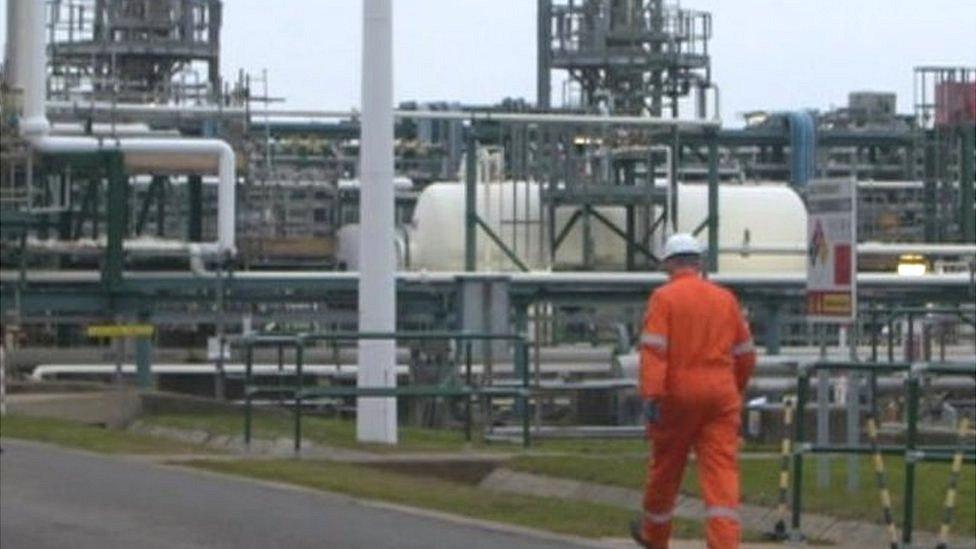Gas plant 'ideal' to make hydrogen and capture CO2
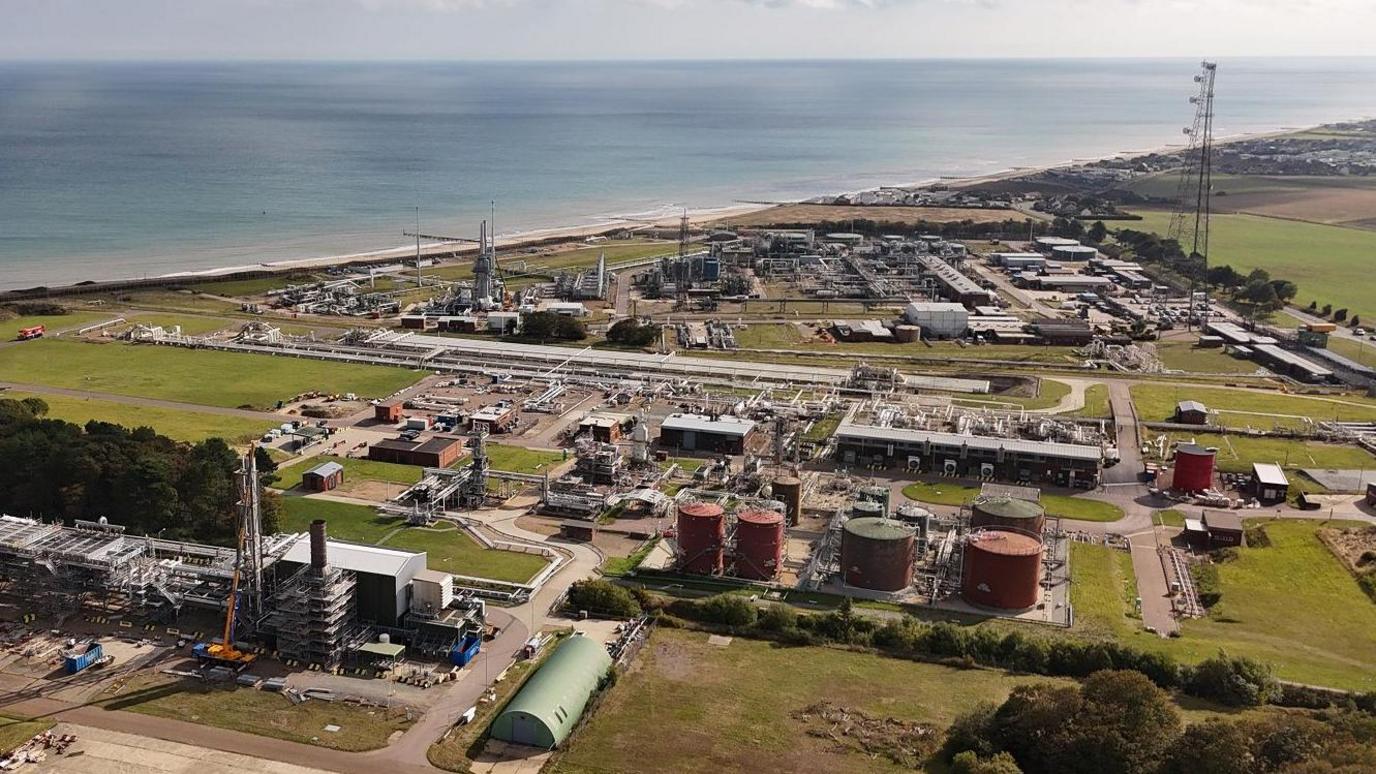
Up to one third of the UK's natural gas supply is processed at Bacton, on the Norfolk coast
- Published
A coastal site that provides about one third of the UK's gas supply is "ideally placed to be a carbon capture hub", according to the region's energy group.
Kevin Keable, chair of East of England Energy Group, external, said Bacton Gas Terminal in Norfolk also had the potential to manufacture hydrogen as an alternative fuel to gas.
The same reservoirs that supply natural gas from below the North Sea could be used to store excess carbon dioxide (CO2) in a bid to reduce emissions.
"For net zero to happen, we need to capture that carbon and store it," said Mr Keable.
In October, the government pledged nearly £22bn for projects to capture and store CO2 - a process known as CCS.
But environmental groups such as Greenpeace and Friends of the Earth are concerned CCS could just prolong the burning of fossil fuels, which contribute to global warming.
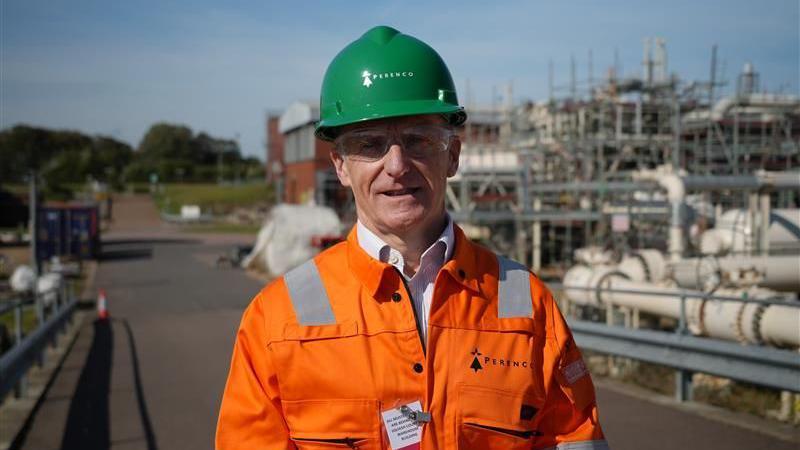
Kevin Keable said Bacton "is hugely important to us as a region, to the country and for climate change"
Jonathan White is general manager of Perenco, which operates one of Bacton's terminals. He also co-leads the Poseidon Project which plans to pipe unwanted CO2 into the Leman gas field off the Suffolk coast.
"Some of the UK's carbon emissions come from burning gas and fossil fuels, as well as industrial processes – such as cement factories, sugar factories, waste incineration.
"If that can be captured and sent offshore to the same fields, then that's really good for the environment," said Mr White.
He said Bacton was well-placed to set up a CCS system.
"The expertise we have of gas is somewhat transferable. We have a very skilled workforce that knows how to work in a difficult offshore environment."
He said Perenco had not developed facilities to capture carbon, but had run tests pumping 4,000 tonnes of liquid CO2 into the Poseidon site.
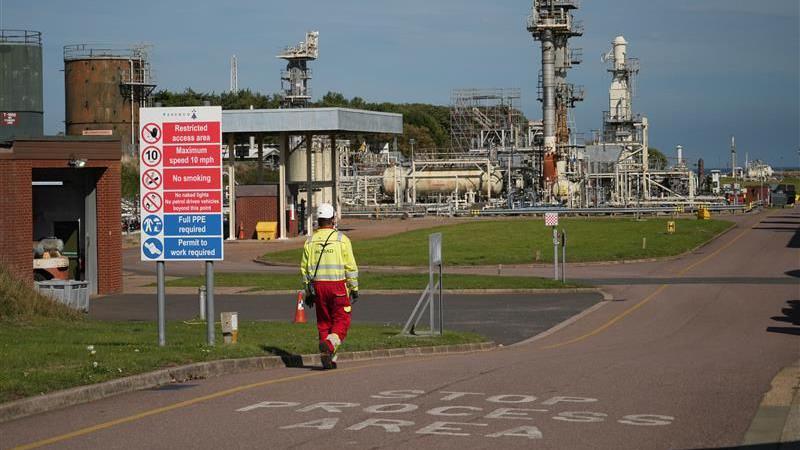
Perenco says Bacton's workers are highly skilled and well adapted to the "offshore environment"
"Perenco proved the tech and pumped carbon away in some vast quantities – it is definitely achievable," said Mr Keable.
Critics of CCS, such as Greenpeace, say it only "extends the life of planet-heating oil and gas production".
There are concerns it will not scale up in time to make a dent in carbon emissions, which scientists say must dramatically reduce to avoid the worst effects of climate change.
Globally, more than 35 billion tonnes of carbon are emitted each year, but only 50 million tonnes are currently captured by about 45 CCS sites, according to the International Energy Agency.
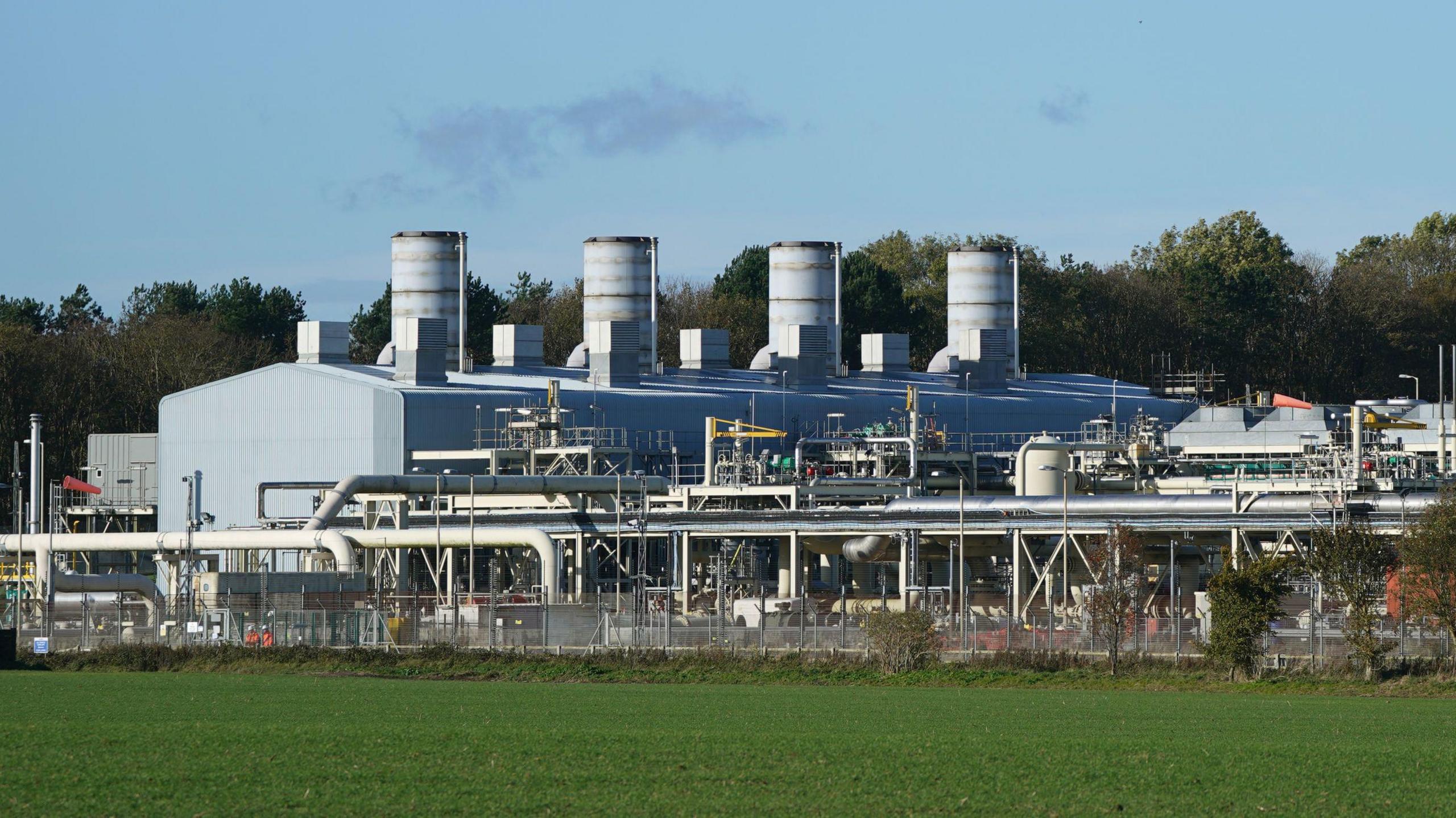
East of England Energy Group hopes Bacton can produce hydrogen in the future
Meanwhile, Mr Keable said, Bacton could be producing hydrogen by 2030.
Hydrogen does not give off greenhouse gases when it is used, but producing the fuel can involve burning gas - known as "blue hydrogen".
However "green hydrogen" can also be created using surplus wind or solar energy
"Green hydrogen is the future," said Mr Keable.
"For today we're talking about blue hydrogen from gas and green hydrogen from wind farms, using electricity.
"Bacton could become the UK's new energy gateway, storing carbon, producing hydrogen and securing local business and jobs for decades, whilst tackling climate change."
Get in touch
Do you have a story suggestion for Norfolk?
Follow Norfolk news on BBC Sounds, Facebook, external, Instagram, external and X, external.
Related topics
- Published23 July
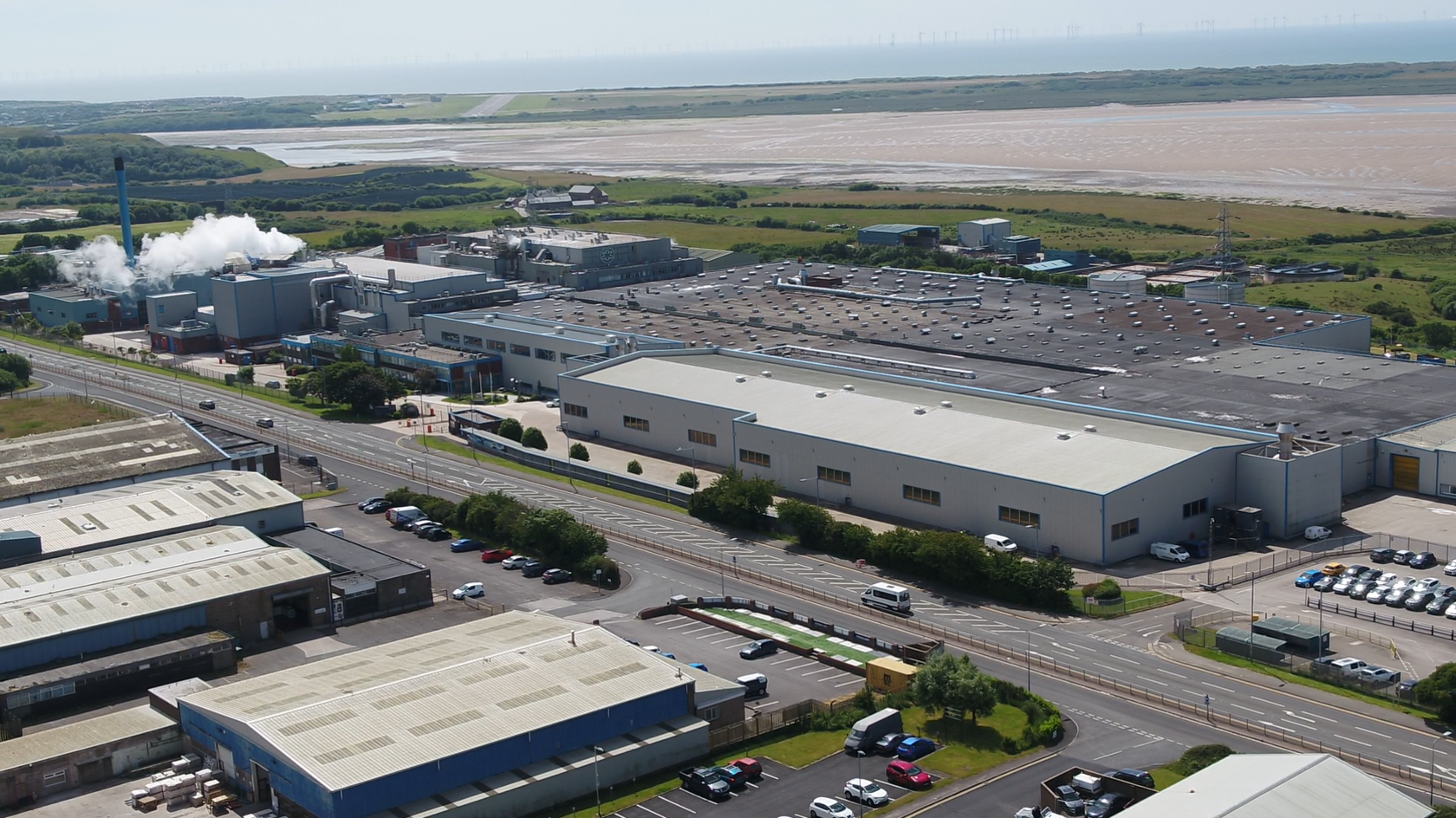
- Published4 October 2024
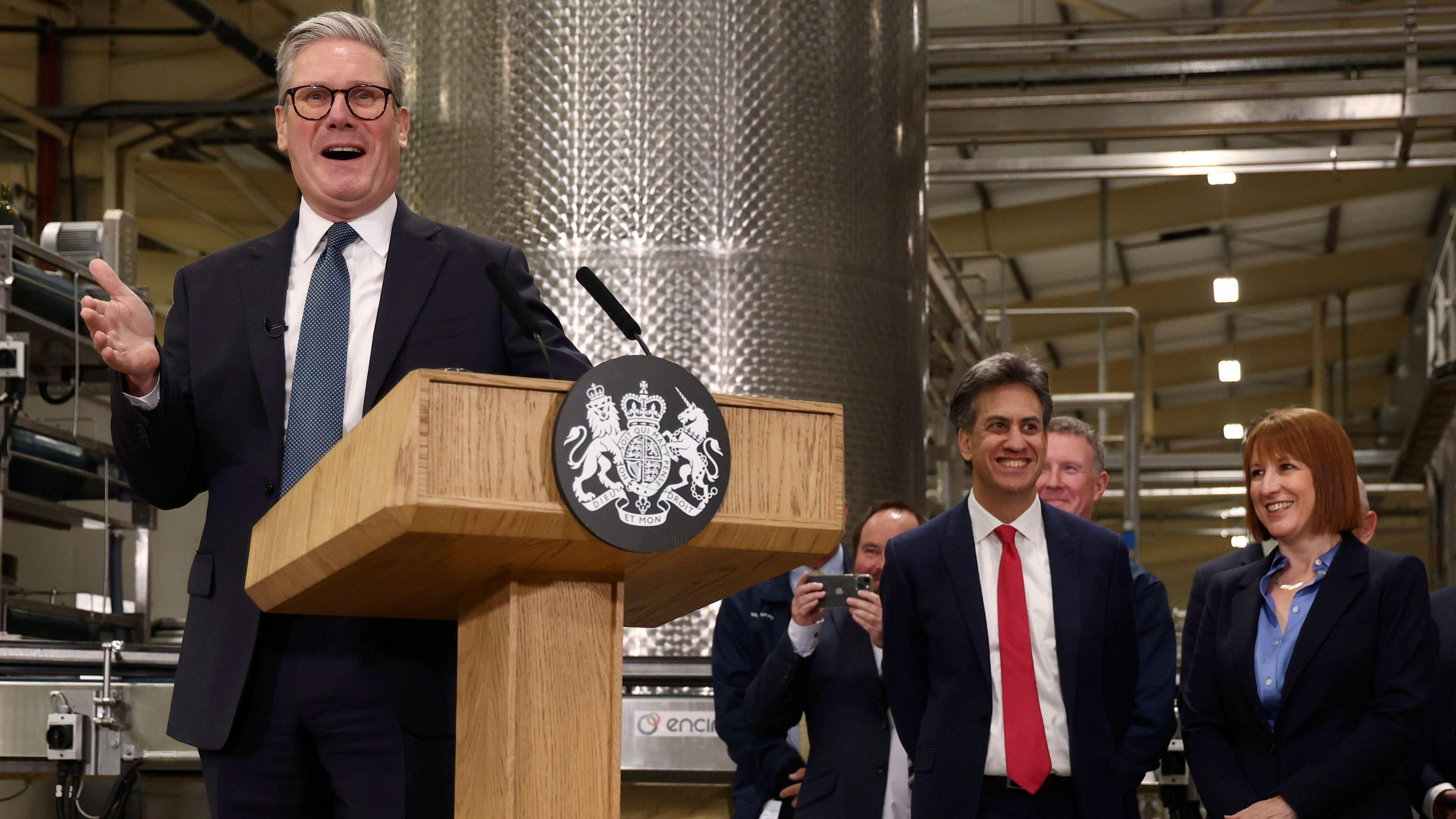
- Published5 June 2023
